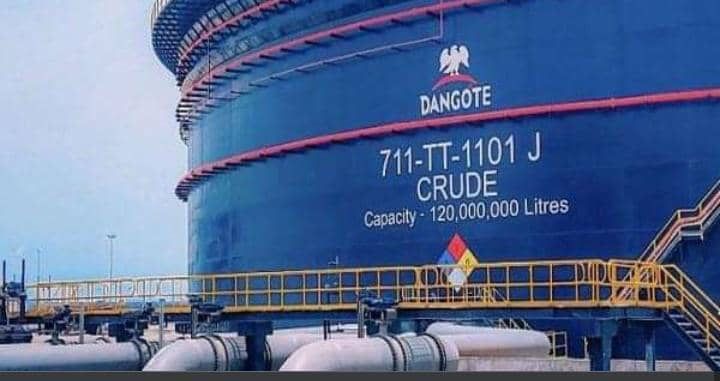
The decision by Dangote Petroleum Refinery to reduce the ex-depot price of Premium Motor Spirit (PMS) from N950 to N890 per litre has stirred significant debate within the petroleum marketing sector. The move, which came on Saturday night, is seen as a response to recent warnings from traders considering importing cheaper PMS due to the high cost of locally refined products.
In an official statement, Dangote Refinery explained that the price reduction was prompted by favorable global energy market developments and a sharp decline in international crude oil prices. The refinery’s price adjustment is expected to lower petrol costs nationwide, potentially benefiting the broader economy.
While the reduction is welcomed by many, especially consumers, petroleum marketers are grappling with its immediate effects. Marketers who purchased petrol at the previous price of N950 just hours before the new price announcement now face the challenge of selling at a loss. Those who are stuck with old stock may be forced to sell below cost, risking significant financial losses.
Vice President of the Independent Petroleum Marketers Association of Nigeria (IPMAN) Hammed Fashola, acknowledged that the price reduction has both positive and negative implications for businesses. On one hand, it benefits consumers by making fuel more affordable, but on the other, it poses a challenge for marketers who will lose money on recently purchased stock.
Fashola explained that when such price reductions occur, marketers have no choice but to lower their prices to remain competitive. “If you don’t reduce the price, you won’t sell. Competition will force you to do it,” he said, adding that the market’s competitive nature means that any delay in adjusting prices can result in a loss of customers.
Despite the immediate losses for some marketers, Fashola highlighted that the reduction reflects the power of competition in a deregulated market. He also emphasized that the Dangote refinery’s price cut was likely a response to the threat of cheaper imported petrol undercutting locally refined products.
Some industry observers, including Billy Gillis-Harry, President of the Petroleum Products Retail Outlet Owners Association of Nigeria (PETROAN), have welcomed the price reduction, noting that it could alleviate the financial burden on Nigerians and lower the cost of transportation and goods. He suggested that the broader economic benefits of cheaper fuel could lead to a decrease in the cost of living, reduced inflation, and improved economic activity.
However, not all industry players are optimistic. Chinedu Ukadike, National Publicity Secretary of IPMAN, pointed out that such price cuts are costly for marketers, especially those who face collateral losses due to loans taken from banks to purchase fuel at higher prices. He described the situation as a precarious one for marketers, who are left to bear the financial burden with no compensation for their losses.
The ongoing price adjustments in the market may also prompt the Nigerian National Petroleum Company Limited (NNPC) to follow suit and reduce its prices to stay competitive, as indicated by some industry experts. As competition intensifies, the future of petroleum pricing in Nigeria remains uncertain, but it’s clear that the recent reduction by Dangote Refinery is reshaping the market dynamics.




